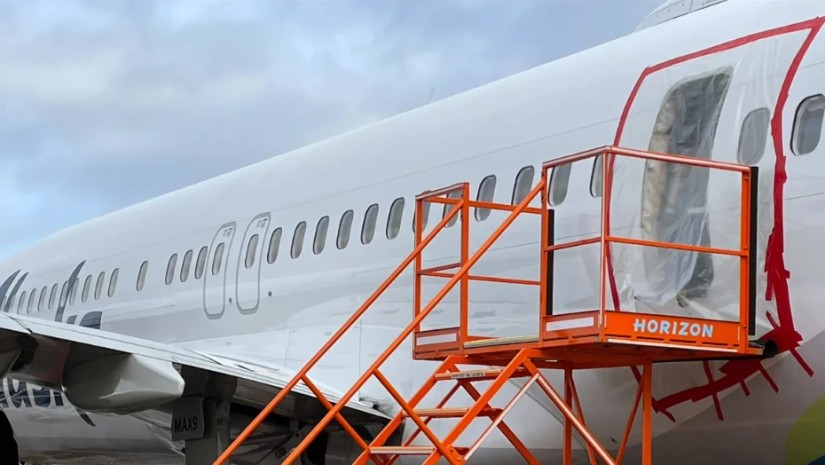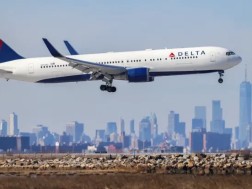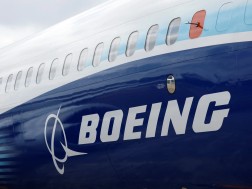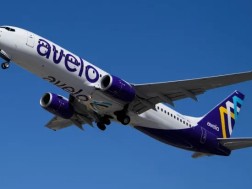Boeing’s production problems are reverberating through an airline industry starved for planes, making it harder for carriers to meet red-hot demand for travel and raising the prospect of even higher ticket prices.
On Wednesday, Ryanair (RYAAY) CEO Michael O’Leary explained why prices have further to climb. “If you have constrained supply (and) strong demand, I think it’s inevitable that you’re going to see air fares bump again this summer… between 5 and 10%,” he told CNN’s Richard Quest.
Europe’s biggest airline by passengers had expected to receive 57 Boeing planes this summer, but now anticipates getting between 35 and 40, according to O’Leary.
Ryanair is far from the only major carrier with too few aircraft. Southwest in the United States, which flies only Boeing 737 planes, announced last week that Boeing would deliver 40% fewer jets than it had been expecting this year.
A critical shortage of planes is also plaguing other airlines — and the problem is not confined to Boeing.
According to aviation analytics firm Cirium, about 600 Airbus jets globally have been grounded for at least the last month due to an issue with engines made by US aerospace manufacturer Pratt & Whitney.
That’s hurting Lufthansa, the German group that also owns carriers in Austria and Switzerland. CEO Carsten Spohr told CNN Wednesday that it has more than 30 Airbus A320Neos currently grounded.
“This industry … suffers from this lack of airplanes,” he added, noting that the shortage was affecting the company’s ability to grow.
The grounding of some planes and delayed deliveries of new aircraft will mean that fares in the United States “should stay elevated through 2024, instead of tapering… as occurred last year after May,” according to Robert Mann, founder of R.W. Mann & Company, an airline industry consulting firm in the United States.
Mann cited data from Airlines Reporting Corporation, which tracks ticket sales worldwide, showing that fares on US domestic flights booked in February for travel this year were 5%-6% higher than the same month last year, far outpacing overall inflation.
Airbus output still below 2019
The supply constraints helping to keep air fares higher may be around for some time yet. There’s a near-duopoly between Boeing and Airbus in commercial aircraft manufacturing, meaning airlines have almost no option but to wait in line.
According to ADS, the United Kingdom’s aerospace industry association, the global order backlog for commercial aircraft has now topped 15,700.
Last year, airlines globally placed 3,850 commercial aircraft orders, the highest number since ADS started publishing the data in 2010 and a 91% increase on 2022. By comparison, planemakers delivered 1,265 aircraft, just 11% up on the previous year.
Boeing said this week that it had slowed production of its 737 Max jets after a part of the fuselage of a Max 9 blew out mid-flight in early January, leaving a gaping hole in the side of the plane.
Aviation regulators have yet to certify Boeing’s Max 10 as safe for passengers — a plane crucial to the growth of carriers such as Ryanair, which inked a $40 billion deal last year to buy up to 300 of the aircraft.
United Airlines, for its part, is not waiting around for Max 10s. The US carrier has asked Boeing to stop building it Max 10s and build Max 9s instead, and is also looking at plugging the gaps with Airbus planes, provided it makes financial sense.
“If we get a deal that the economics work, we’ll do something (with Airbus),” CEO Scott Kirby said at a JPMorgan conference last week.
But — as Kirby well knows — it’s not that easy to switch planemakers. Aircraft orders are placed years in advance and pilots are trained to fly certain planes. Airbus, meanwhile, had an order backlog approaching 8,600 commercial aircraft at the end of last year and is already booked up until 2030.
The European planemaker is also a lot less productive than it used to be as pandemic supply chain kinks linger. “At Airbus, we are still producing far less planes than we were producing in 2019,” CEO Guillame Faury said at the “Europe 2024” conference in Berlin this week.
According to Johan Lundgren, the CEO of EasyJet, the low-cost UK carrier is “probably the only airline in Europe” getting all its aircraft orders from Airbus on time this year. The industry will likely be constrained for the next three years, he told CNN.
Soaring demand
Even before Boeing’s troubles turned the industry on its head, airlines were ill-prepared for the spectacular comeback in air travel that followed the pandemic. Many had slashed the size of their fleets and laid off thousands of employees just to stay afloat as Covid-19 lockdowns throttled air travel.
Airlines are now scrambling to respond to resurgent demand, as Boeing’s crisis collides with supply chain problems. A global boom in defense spending is complicating matters further, since about 40% of the supply chain serves both aerospace and defense companies, according to Craven at ADS.
The question now, says Richard Aboulafia, a longtime aviation consultant, is how quickly Airbus can ramp up and go from “half the market to two-thirds and beyond.”
“This is an industry with only two suppliers, very high barriers to entry and (an) extremely strong comeback with a very tight labor market,” he told CNN.
Some 4.7 billion people are expected to travel by plane this year, an historic high that exceeds the 4.5 billion recorded in 2019, according to the International Air Transport Association, an industry group.
“Capacity is going to be tight and that leads to higher ticket prices,” said Aboulafia, who is managing director at AeroDynamic Advisory.
“What you’ll probably see is (that) the reduction in high fares we were hoping to see doesn’t happen. You’ll probably see a reversal… across the board and centered in the Atlantic.”
Source: CNN























